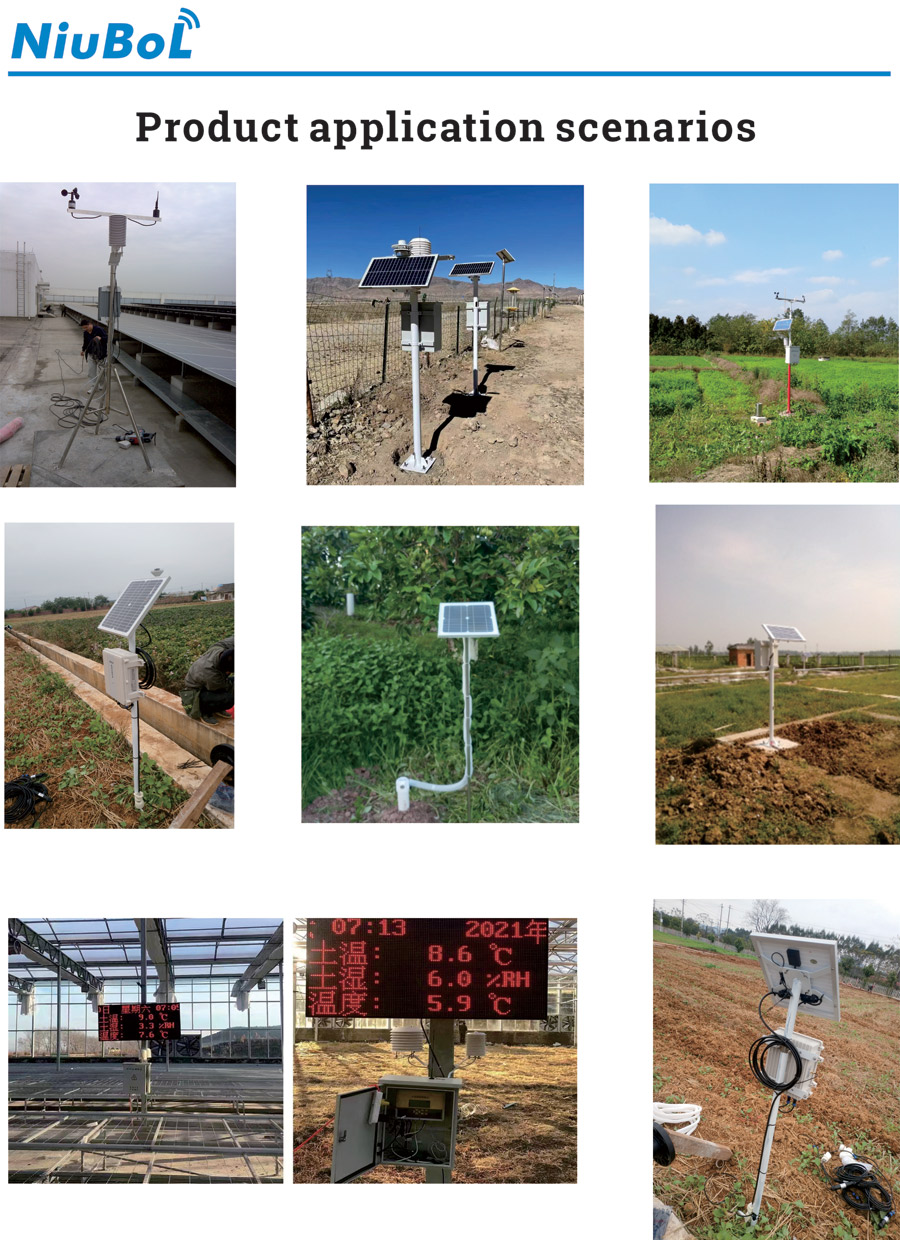

— Blogs —
—Products—
 Consumer hotline +8618073152920
Consumer hotline +8618073152920 WhatsApp:+8615367865107
Address:Room 102, District D, Houhu Industrial Park, Yuelu District, Changsha City, Hunan Province, China
Product knowledge
Time:2023-11-07 16:02:22 Popularity:1069
Commonly used sensors in agriculture and their roles
Sensors play an increasingly important role in modern agricultural production, helping farmers and agricultural experts make scientific decisions and improve production efficiency and quality by monitoring and collecting data on the environment, crops and animals. In this paper, we will discuss the commonly used sensors in agriculture and explore their roles and significance.
Soil moisture sensor is one of the widely used sensors in agricultural production. It can monitor the moisture content in the soil in real time, helping farmers to rationalize irrigation schedules, avoiding too much or too little irrigation, and improving the efficiency of water use, as well as promoting the growth of crops to improve yield and quality.
2. Temperature sensors
Temperature sensors are widely used in scenarios such as greenhouses, greenhouses and cold stores to monitor the ambient temperature. By monitoring the temperature in real time, farmers can adjust the temperature in the greenhouse in a timely manner to provide a suitable growing environment for the plants and ensure the growth cycle and quality of the crops.
3. Light Sensor
Light sensors are used to monitor light intensity, which is especially important for crops grown indoors and in greenhouses. By monitoring light conditions, farmers can adjust the time and intensity of lights used to mimic natural light conditions, promoting plant photosynthesis and improving yield and quality.

4. Weather Station
The weather station integrates a variety of sensors, including temperature, humidity, wind speed, rainfall and other sensors, for comprehensive monitoring of environmental weather information. Based on the data from the weather station, farmers can better plan their agricultural production, prevent natural disasters, and improve the adaptability and resilience of their crops.
5. pH Sensor
pH sensors are used to monitor the acidity or alkalinity of a soil or water body, which is important for the cultivation of specific crops and fertilizer inputs. By monitoring the pH of the soil or water body, farmers can regulate the soil acidity and alkalinity to ensure the balance of nutrient absorption by the crops and improve the yield and quality of the crops.
Through the above introduction, we can see that sensors play an irreplaceable role in agricultural production. They provide farmers with a wealth of environmental information and crop growth data to help make agricultural production more scientific and precise, and improve the efficiency and sustainability of agricultural production. With the continuous progress of technology, the application of sensors in the field of agriculture will be more broad prospects for the modernization and development of agriculture to provide more possibilities.
Prev:Agricultural Soil Sensors are a Future-Changing Technology
Next:Soil monitoring sensors:key to sustainable agricultural development
Related recommendations
Sensors & Weather Stations Catalog
Agriculture Sensors and Weather Stations Catalog-NiuBoL.pdf
Weather Stations Catalog-NiuBoL.pdf
Related products
 Combined air temperature and relative humidity sensor
Combined air temperature and relative humidity sensor Soil Moisture Temperature sensor for irrigation
Soil Moisture Temperature sensor for irrigation Soil pH sensor RS485 soil Testing instrument soil ph meter for agriculture
Soil pH sensor RS485 soil Testing instrument soil ph meter for agriculture Wind Speed sensor Output Modbus/RS485/Analog/0-5V/4-20mA
Wind Speed sensor Output Modbus/RS485/Analog/0-5V/4-20mA Tipping bucket rain gauge for weather monitoring auto rainfall sensor RS485/Outdoor/stainless steel
Tipping bucket rain gauge for weather monitoring auto rainfall sensor RS485/Outdoor/stainless steel Pyranometer Solar Radiation Sensor 4-20mA/RS485
Pyranometer Solar Radiation Sensor 4-20mA/RS485
Screenshot, WhatsApp to identify the QR code
WhatsApp number:+8615367865107
(Click on WhatsApp to copy and add friends)
